FNB Cybersecurity Info: Phishing
October is Cybersecurity Awareness Month and FNB wants to bring you valuable weekly tips and information that will help you protect your good name. Your accounts, social security number, and personal identification information doesn’t come with a built-in alarm, so we’re bringing you a variety of weekly tips to help keep your money and identity safe. We encourage you to stay tuned to GrowWithFNB.com throughout October and let’s #BeCyberSmart.
Last week, we touched on the topic of Phishing. This week we are going to dive deeper into this subject, as this is a huge issue in today’s society for both individuals and businesses. Phishing is a form of social engineering where a bad guy impersonates someone you think is legitimate in an attempt to gain access to your system or get you to do something for them. Phishing attacks can happen over the phone, across text messages, and most commonly over email. The FBI’s Internet Crime Complaint Center (IC3) recorded more than $3.5 billion in losses to individuals and businesses in 2019 with the most frequently reported complaints as phishing and similar ploys.
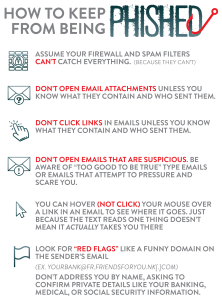
If you are not sure about an email, the best rule of thumb is to call and get confirmation from the sender. Compromised email accounts can lead to other issues with your banking, shopping, and more. What safeguards can you put in place for extra layers of protection? Create strong passwords that are long and complex. A helpful tip for creating strong passwords and being able to remember them is by using favorite movie quotes, song lyrics, book titles, and more.
Let’s talk about Business Email Compromise (BEC), also known as Customer/Corporate Account Takeover (CATO). According to the FBI’s IC3, BEC’s cost businesses over $1.7 billion in losses in 2019. Compromised business email accounts are extremely serious. Bad guys compromise and takeover your real business email address (almost always through a phishing email that tricked a user into giving up their password) and use it to impersonate you, steal money through conducting illegal payments, wire fraud, gift card purchases, go after payroll funds, and more.
- First and most importantly, train your staff about phishing emails and the risks of email compromise. Teach them how to avoid phishing scams and red flags to look out for. Train them not to give out passwords and other sensitive information.
- Keep your security up to date.
- Email filters don’t always work but they work better when kept up to date.
- Keep your antivirus up to date and install your system patches. Malware that tries to get installed will have a harder time if you do this.
- Communication is key! Encourage your staff to talk with their coworkers about possible phishing emails. Bad guys often take a “shotgun” approach and target many users at once hoping one person will allow the compromise.
- Verify, verify, verify! Just like at home if you were to get an email from someone and you’re unsure about it, call and check. A two-minute call can save you months or years of problems. What if your customer has experienced a business email compromise? Stay on your toes!
- Remember Week 1? Stay Security Aware! Check out the following resources below from the FBI and the FTC:
As we wrap up Week 3, we want to remind you that FNB (and any other financial institution) will not ever call, text or e-mail you and ask you for your debit card number, PIN number, social security number, account number and more. We already have your personal information securely on file at the bank from when you opened your accounts; therefore, we would never have reason to contact you again for them. As always, please contact your bank immediately if you feel like you’ve accidentally fallen victim to a scam. We are here to help and guide you through the process and help protect your identity.



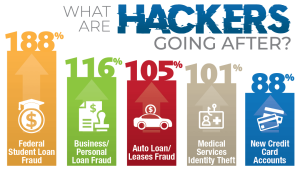

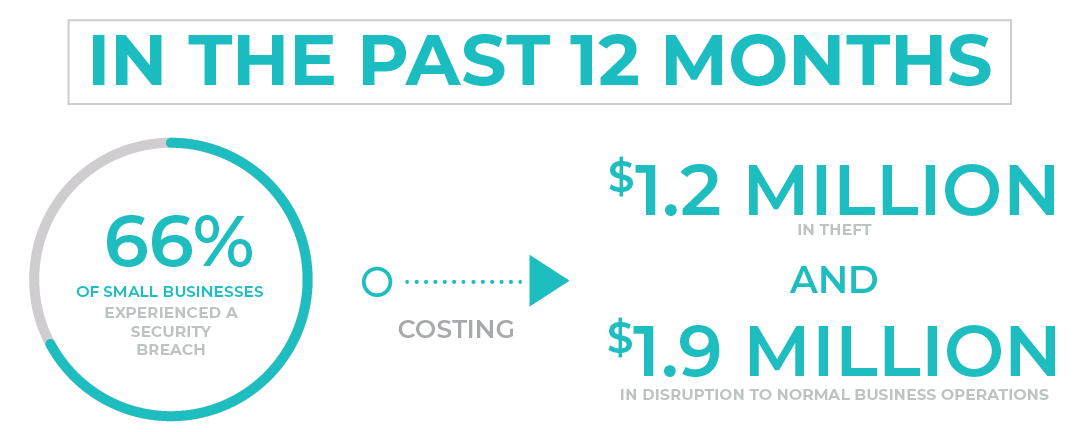

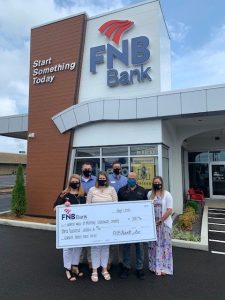 FNB’s Murray Offices recently made a $300 donation to United Way of Murray-Calloway County for the COVID-19 Benevolent Fund. 100% of all donations to this fund go to support families in Calloway County. In the past four months, United Way of Murray-Calloway County assisted 49 families with rent and utility assistance in the amount of $20,613.78. This donation will help with United Way’s mission to continue meeting the needs of those requiring assistance during these difficult times.
FNB’s Murray Offices recently made a $300 donation to United Way of Murray-Calloway County for the COVID-19 Benevolent Fund. 100% of all donations to this fund go to support families in Calloway County. In the past four months, United Way of Murray-Calloway County assisted 49 families with rent and utility assistance in the amount of $20,613.78. This donation will help with United Way’s mission to continue meeting the needs of those requiring assistance during these difficult times.
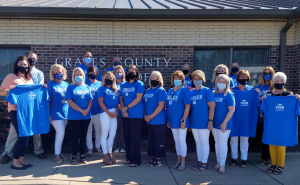 FNB Bank is proud to announce the sponsorship of Graves County School’s staff t-shirts for the 2020-2021 school year. The shirts were distributed to all employees of Graves County Schools to wear throughout the upcoming school year.
FNB Bank is proud to announce the sponsorship of Graves County School’s staff t-shirts for the 2020-2021 school year. The shirts were distributed to all employees of Graves County Schools to wear throughout the upcoming school year.
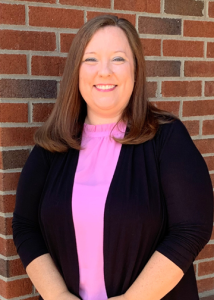 Jessica Tucker has over 10 years of banking experience and currently serves as Controller for FNB. Jessica is a graduate of Murray State University with a bachelor’s degree in Business and a Master of Professional Accountancy. She currently serves as the Treasurer for the Mayfield Schools Booster Club. Jessica resides in Mayfield with her husband Jeffrey, and their sons, Dylan, Brendan, and Callan.
Jessica Tucker has over 10 years of banking experience and currently serves as Controller for FNB. Jessica is a graduate of Murray State University with a bachelor’s degree in Business and a Master of Professional Accountancy. She currently serves as the Treasurer for the Mayfield Schools Booster Club. Jessica resides in Mayfield with her husband Jeffrey, and their sons, Dylan, Brendan, and Callan. Denina Robertson, from Mayfield, KY, has over 38 years of banking experience and currently serves as the Office Manager for FNB’s Mayfield Main Office as well as the bank Training Officer. Denina attended Paducah Community College and previously served as a Chamber Ambassador. She has also served on the Board of Directors for JU Kevil and Purchase Players. Denina is a member of Trace Creek Baptist Church where she is active in the children’s ministry and works on the directing team for “The Promise”.
Denina Robertson, from Mayfield, KY, has over 38 years of banking experience and currently serves as the Office Manager for FNB’s Mayfield Main Office as well as the bank Training Officer. Denina attended Paducah Community College and previously served as a Chamber Ambassador. She has also served on the Board of Directors for JU Kevil and Purchase Players. Denina is a member of Trace Creek Baptist Church where she is active in the children’s ministry and works on the directing team for “The Promise”. Tyler Goodman currently serves as a Business Banking Officer for FNB’s Mayfield-Graves County Market. Goodman is a 2002 graduate of Graves County High School and a 2006 graduate of the University of Kentucky where he earned a bachelor’s degree in Political Science. He serves as a board member for the Mayfield-Graves County Senior Center, Mayfield-Graves County Tourism and the Mayfield-Graves County Airport. Tyler is the current Mayfield Rotary Club President and recently began serving his second term as a Graves County Commissioner. He resides in Mayfield with his wife, Alex.
Tyler Goodman currently serves as a Business Banking Officer for FNB’s Mayfield-Graves County Market. Goodman is a 2002 graduate of Graves County High School and a 2006 graduate of the University of Kentucky where he earned a bachelor’s degree in Political Science. He serves as a board member for the Mayfield-Graves County Senior Center, Mayfield-Graves County Tourism and the Mayfield-Graves County Airport. Tyler is the current Mayfield Rotary Club President and recently began serving his second term as a Graves County Commissioner. He resides in Mayfield with his wife, Alex.
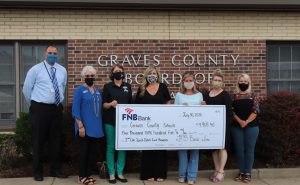 August 12, 2020 (Mayfield, KY) FNB Bank is proud to announce that they have donated over $18,200 back to Mayfield, Graves County and Trigg County Schools through their Spirit Debit Card Program. These donations to the school systems are a result of FNB’s 2nd quarter 2020 Spirit Debit Card Reward Program.
August 12, 2020 (Mayfield, KY) FNB Bank is proud to announce that they have donated over $18,200 back to Mayfield, Graves County and Trigg County Schools through their Spirit Debit Card Program. These donations to the school systems are a result of FNB’s 2nd quarter 2020 Spirit Debit Card Reward Program.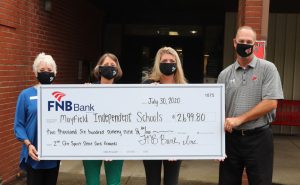 The FNB Spirit Debit Card Rewards Program allows FNB and their customers the opportunity to give back to their local schools when they use their FNB debit card. FNB currently offers Spirit Debit Cards for Mayfield, Graves County and Trigg County Schools. The Spirit Card works like a traditional debit card and for each signature-based transaction (not using your PIN), FNB donates $0.10 to the corresponding school. The tracking process is hassle free for the card holder, as FNB does all the tracking and submits the check to each school on a quarterly basis. The donated funds are utilized at the school’s discretion.
The FNB Spirit Debit Card Rewards Program allows FNB and their customers the opportunity to give back to their local schools when they use their FNB debit card. FNB currently offers Spirit Debit Cards for Mayfield, Graves County and Trigg County Schools. The Spirit Card works like a traditional debit card and for each signature-based transaction (not using your PIN), FNB donates $0.10 to the corresponding school. The tracking process is hassle free for the card holder, as FNB does all the tracking and submits the check to each school on a quarterly basis. The donated funds are utilized at the school’s discretion.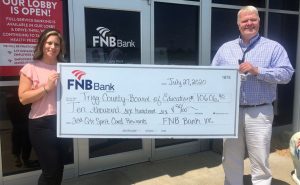 FNB Bank, founded in 1875, is one of the oldest banks in the state of Kentucky and ranks among the highest in the nation in the area of safety and soundness. The bank currently has nine locations: Mayfield Main, Mayfield Southside, Wingo, Lone Oak, Paducah Midtown, Murray North, Murray South, Cadiz Main, and Cadiz West. FNB is member FDIC and an Equal Housing Lender.
FNB Bank, founded in 1875, is one of the oldest banks in the state of Kentucky and ranks among the highest in the nation in the area of safety and soundness. The bank currently has nine locations: Mayfield Main, Mayfield Southside, Wingo, Lone Oak, Paducah Midtown, Murray North, Murray South, Cadiz Main, and Cadiz West. FNB is member FDIC and an Equal Housing Lender.
